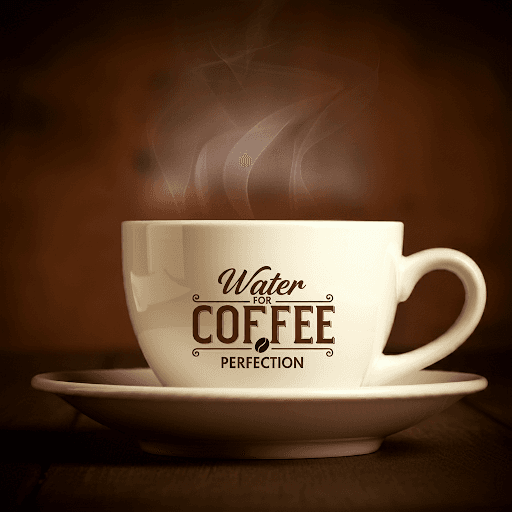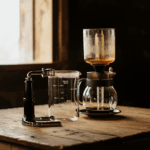Welcome back, coffee aficionados! In our last article, we ventured beyond the familiar and explored the world of alternative brewing methods. You learned about the smooth indulgence of cold brew, the captivating spectacle of siphon brewing, and the versatile AeroPress. Now, it’s time to delve into a crucial element that often gets overlooked: water.
Water: The Unsung Hero of Coffee Brewing
Think about it: your cup of coffee is roughly 98% water. That means the quality of your water can significantly impact the final flavor of your brew. Just like the origin of your beans or your chosen brewing method, water plays a vital role in extracting the full potential of your coffee.
In this article, we’ll uncover the secrets of water quality and filtration, revealing how different water compositions can affect your coffee’s taste and aroma. We’ll also explore various filtration methods and guide you on how to optimize your water for a truly exceptional brewing experience.
Why Water Matters
Different water sources have varying levels of minerals and other compounds that can interact with coffee compounds during extraction. Some minerals can enhance the flavor, while others can create unpleasant tastes or aromas. Understanding these interactions is key to brewing consistently delicious coffee.
Imagine this: you’ve just received a bag of exceptional Ethiopian Yirgacheffe coffee beans, known for their delicate floral aromas and bright citrus acidity. You meticulously grind the beans, carefully measure your coffee-to-water ratio, and brew using your favorite pour-over method. But when you take that first sip, something seems off. The flavors are muted, the acidity is dull, and the overall experience is underwhelming. The culprit? Your water.
The Ideal Water Composition
The Specialty Coffee Association (SCA) has developed guidelines for optimal water composition in coffee brewing. According to the SCA, ideal brewing water should have:
- A neutral pH between 6.5 and 7.5: This ensures that the water doesn’t interfere with the natural acidity of the coffee, allowing the inherent flavors of the beans to shine through.
- Total Dissolved Solids (TDS) between 75-250 parts per million (ppm): TDS refers to the amount of minerals dissolved in the water. The ideal range allows for proper extraction without over- or under-extracting the coffee, resulting in a balanced and flavorful cup.
- Minimal chlorine, iron, and other taste-affecting minerals: These impurities can create unpleasant flavors and aromas in your coffee, masking the delicate nuances of the beans. Using filtered water removes these impurities, allowing the true flavors of the coffee to emerge.
Common Water Quality Issues
Here are some common water quality issues and how they can affect your coffee:
- Hard Water: High mineral content, especially calcium and magnesium, can lead to over-extraction and bitter, astringent flavors. Think of that chalky taste you sometimes get from tap water—it can overpower the delicate flavors of your coffee.
- Chlorinated Water: Chlorine, commonly used to disinfect tap water, can impart a chemical taste and mask the delicate aromas of your coffee. This can result in a coffee that tastes bland and lacks complexity.
- Soft Water: Low mineral content can result in under-extraction and weak, flat flavors. The coffee might taste watery and lack the body and richness you desire.
Filtration Methods
Fortunately, there are several ways to improve the quality of your brewing water:
- Carbon Filtration: This method uses activated carbon to remove chlorine, sediment, and other impurities that can affect the taste and aroma of your coffee. It’s a cost-effective and readily available option, with filters available for pitchers, faucets, and even refrigerators.
- Reverse Osmosis (RO): RO systems use a semi-permeable membrane to remove a wider range of dissolved solids, including minerals. This results in highly purified water, but it might also strip away beneficial minerals that contribute to flavor. If you use RO water, consider remineralizing it with a product like Third Wave Water.
- Third Wave Water: This is a specially formulated mineral blend designed to create the ideal water profile for coffee brewing. It’s a convenient option for those who want consistent and optimized water quality, ensuring that every cup tastes its best.
Beyond Filtration
Other factors, such as water temperature and freshness, can also influence your brew. Using water that’s too hot can lead to over-extraction and bitterness, while water that’s too cold can result in under-extraction and weak flavors. Always use fresh, cold water for brewing, as stale water can develop off-flavors that will affect your coffee’s taste.
Elevating Your Brew: Advanced Techniques and Recipes
Now that you’ve mastered the secret ingredient of water quality and filtration, you’re ready to take your brewing skills to the next level. In our next article, “Bloom 203: III. Level Up Your Brew” we’ll explore advanced brewing concepts and recipes that will help you create truly exceptional cups of coffee.
Stay tuned to learn about pre-infusion, pulse pouring, temperature manipulation, and other techniques that can unlock new levels of flavor and complexity in your coffee.





No Comment! Be the first one.